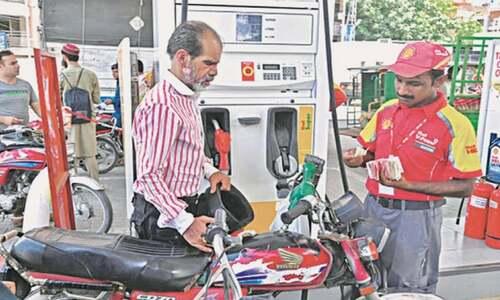CALLS for protests against inflated electricity bills and increased fuel prices have become common in Pakistan’s big cities, but one wonders how poor families in the rural areas are faring in the midst of such hardship. A household survey of 600 families in district Kech in Balochistan, Pakistan’s poorest province, gives shocking details.
Survey respondents included families apparently benefiting from the BRACE Programme, an EU-funded poverty reduction initiative implemented by the Balochistan and National Rural Support Programmes. The survey reveals that although average monthly household income has increased by 29 per cent since the baseline in 2018, monthly expenditure has risen by more than 34pc. Despite the best efforts of NRSP and supporting partners, the end result is that poverty in these households has increased, with a net negative saving amount. If the beneficiaries of a poverty-reduction initiative are suffering setbacks, one can only imagine what rural families not covered by any social protection scheme must be going through.
Foresight Research, a Karachi-based research firm, conducted the baseline in 2018, midline in 2021 and endline in 2023. The surveys also reveal that the lion’s share, ie, 72pc of total household expenditure averaging Rs24,720 is spent on food. This was 60pc in 2018 and 66pc in 2021. If three-fourths of a family’s budget is taken up by food expenses, there is no room to build assets or invest in personal and professional skills development. This is also evident from the land ownership pattern which has reduced since 2018. A decline of 5pc has been reported. In other words, most households are living at the basic survival level or even struggling to maintain the ownership of their assets.
Another major finding of the survey is that the impact of climate change has made its way from science conferences and university research papers into the common people’s lives. Nothing shows that more clearly than when people from two tehsils of a single district complain about two contrasting weather phenomena. In Tump tehsil in Kech district, 45pc of the respondents complained about ‘excessive rainfall’, whereas 50pc of the respondents in Turbat tehsil of the same district cited ‘lesser rainfall’ as the major climate problem. A climate change expert can explain that although the obvious impact may vary from one village to another, droughts and floods are two sides of the same coin, ie, climate change.
Families in Balochistan are nosediving into poverty.
The unpredictability of rainfall has made it difficult for rural communities to make arrangements for the safety of their families, crops and livestock. Over the last five years, loss of livestock has reportedly increased from 24pc to 45pc, loss of agricultural output from 15pc to 44pc and damage to personal property from 19pc to 26pc.
Families and communities usually step up in response to external challenges but beyond a certain threshold, they lose their stamina to put up a united front against visible external threats such as climate change. It is a most worrying finding that, after the initial increase in collective efforts to protect the environment, as noted in the midline survey, fewer respondents now say they are continuing tree plantation efforts, preventing deforestation or adapting to extreme weather conditions by means of improved house construction.
Economic hardships beyond a certain threshold also result in social deterioration. This is evident from the fact that the perception of people helping each other in need has decreased from 56pc in 2018 and 30pc in 2021 to 20pc in 2023. Not surprisingly, when surveyors inquired about trust in local representatives, an increased percentage of respondents — 29pc in 2023 compared to 20pc in 2021 and 15pc in 2018 — opted for ‘no trust’.
Balochistan has long suffered from political instability and economic deprivation but now poor families across the country are nosediving into poverty. The middle class is rapidly thinning and millions of families find it hard to keep their hopes alive for economic betterment. The economic situation needs a stable political leadership to plan and implement concrete measures, especially in regions vulnerable to climate change.
As for the international community, these findings should serve as yet another reminder that the regions and communities surveyed, though contributing least to environmental pollution are the ones bearing the brunt of climate change. The European Union has focused on Balochistan but the centre and the provincial government need to lead from the front to support the rural, poor and marginalised communities of Balochistan.
The writer is a development professional from Balochistan.
X (formerly Twitter): @Changovski
Published in Dawn, October 3rd, 2023












































Dear visitor, the comments section is undergoing an overhaul and will return soon.